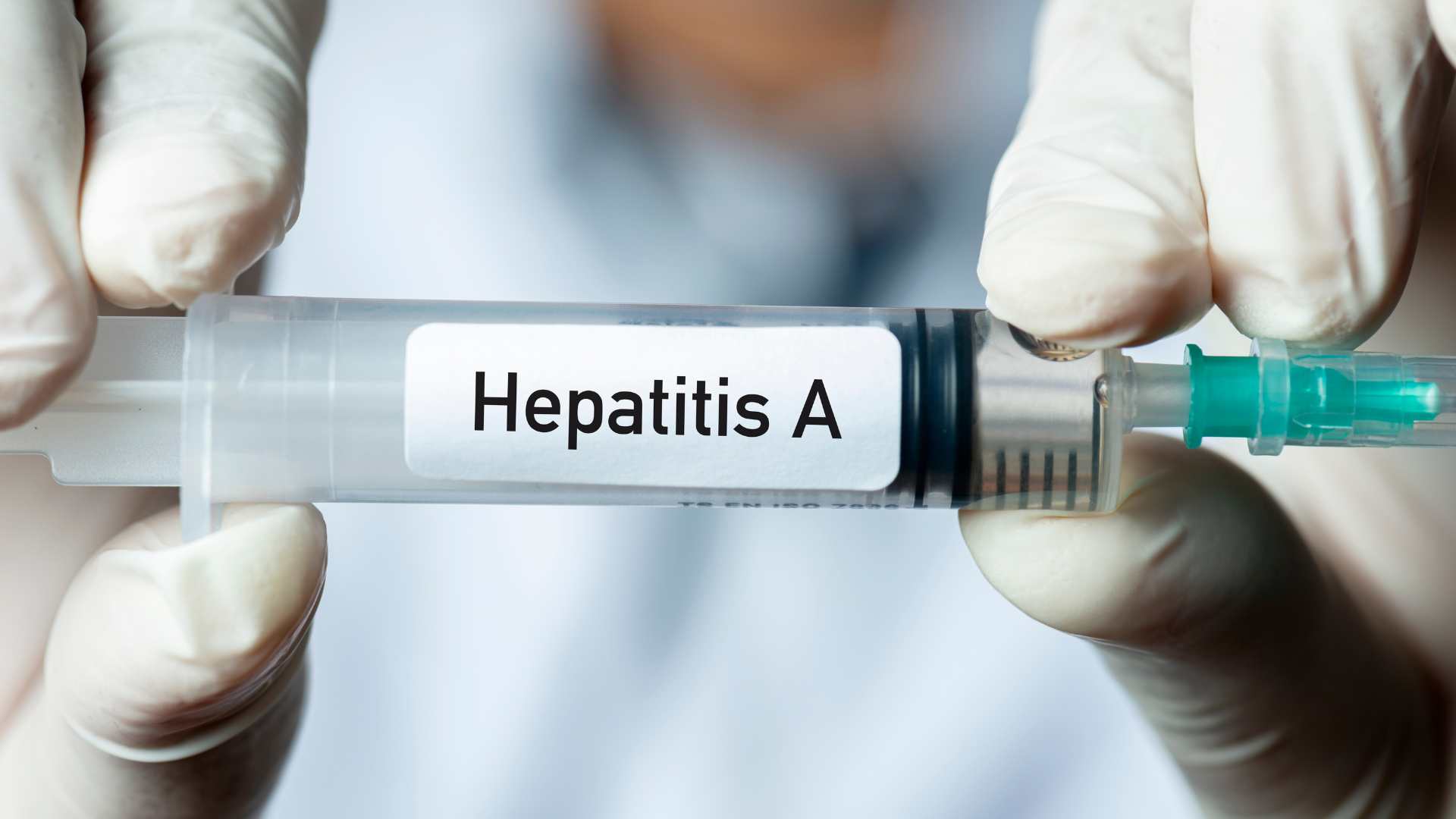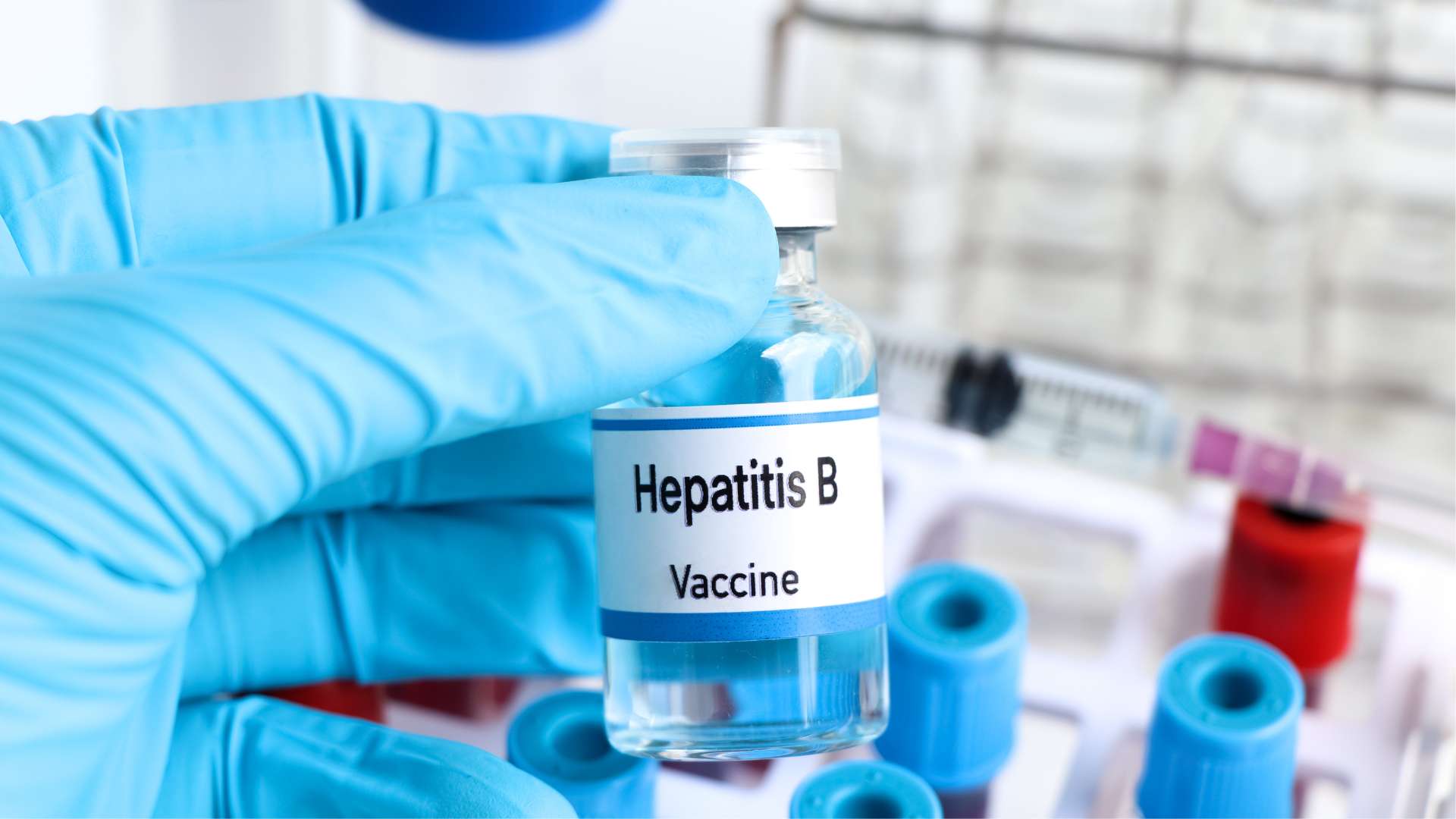
Safeguard your health with
Hepatitis A / B Vaccination
Book an appointment

What is Hepatitis A?
Hepatitis A is a contagious liver infection ranging from a mild to a severe condition. It spreads mainly through consumption of food or water contaminated with fecal matter from an infected individual. This illness is often linked to consuming contaminated water or food, poor sanitation, and inadequate personal hygiene. Common symptoms include fever, tiredness, stomach pain, light-colored stools, dark urine, a decrease in appetite, and jaundice (yellowing of the skin or eyes). Recovery from Hepatitis A can take several weeks or months, impacting the ability to return to work, school, or everyday activities.
Who should get vaccinated against Hepatitis A?
- Individuals traveling to regions where hepatitis A is prevalent.
- People with clotting disorders, such as Hemophilia or von Willebrand disease.
- Those with ongoing liver diseases, including hepatitis B or C.
- Individuals on the liver transplant waiting list or post-transplant recipients.
- Men who engage in sexual activities with other men.
- Recreational drug users, regardless of whether the drugs are injected.
A series of two doses, administered 6 to 12 months apart. Patients will be screened prior to the vaccination.

What is Hepatitis B?
Hepatitis B is a liver infection caused by a virus that spreads through blood, blood product transfusions, and the exchange of bodily fluids. The severity of Hepatitis B can vary, ranging from a brief, mild condition to a severe, lifelong illness, also known as a carrier state. Common symptoms can include fever, nausea, vomiting, dark-colored urine, and jaundice. Those who carry Hepatitis B are at risk of developing liver cirrhosis, liver failure, or liver cancer. The risk of chronic infection is higher in individuals who contract the Hepatitis B virus at a younger age. Hepatitis B is responsible for approximately 80% of primary liver cancers globally, and vaccination significantly lowers the risk of liver cancer by preventing Hepatitis B infection. A blood test is available to check for Hepatitis B antibodies, helping to determine the need for vaccination.
In Singapore, the Hepatitis B vaccine is included in the National Immunisation Schedule.
Who should get vaccinated against Hepatitis B?
- Adults who want to be protected from hepatitis B.
- People living in the same household as someone with hepatitis B.
- Partners of individuals who carry hepatitis B.
- People with high-risk sexual behaviors or multiple sexual partners.
- Patients undergoing hemodialysis.
Three doses are required (0, 1, 6 months). No booster is required after three doses. Patients will be screened prior to the vaccination.

Why is it common to take Hepatitis A & B vaccines together?
Hepatitis A and B are both viral infections that affect the liver, but they are caused by different viruses. It is common to take the Hepatitis A and B vaccines together for several reasons:
- Convenience and Improved Compliance: A combined vaccine, like Twinrix, reduces the number of injections a person needs. This is more convenient and can lead to better adherence to vaccination schedules.
- Broad Protection: By vaccinating against both Hepatitis A and B simultaneously, individuals are protected against two common liver infections, which is particularly beneficial in areas where both viruses are prevalent.
- Safety and Efficacy: Combined vaccines are rigorously tested for safety and effectiveness. Research shows that the combined Hepatitis A and B vaccine is as effective as getting the two vaccines separately.
- Target Population Overlap: The groups at risk for Hepatitis A and B often overlap, so it makes sense to vaccinate against both diseases in one go. For example, travelers to certain countries, healthcare workers, and people with certain medical conditions are at risk for both diseases.
What is Twinrix?
Twinrix is a brand name for a combined vaccine that protects against both Hepatitis A and B. It contains inactivated Hepatitis A virus and the surface antigen of the Hepatitis B virus. Twinrix is typically administered in a series of three injections over a six-month period. The vaccine is used to provide immunity against both Hepatitis A and B, offering a convenient way to protect against these two liver infections with a single series of shots. Twinrix is suitable for use in adults and children over the age of one.
Who is the Twinrix vaccination recommended for?
Individuals who, according to serology tests, have not developed immunity to either hepatitis A or hepatitis B should receive the Twinrix vaccine.
What is the dosage schedule for Twinrix?
The Twinrix vaccination requires a series of three doses, with the subsequent doses administered one month and six months following the initial dose, respectively.
Patients will be screened prior to the vaccination.
Can I use CHAS for the Hepatitis Vaccine?
Yes, you can only use CHAS for Hepatitis B Vaccine. Below is the price list for the Hepatitis B Vaccine:
Standard In-clinic fee: $45
Pinoeer Generation: $9
Merdeka Generation / CHAS Blue / Chas Orange: $19
CHAS Green: $38
Prices are as of Apr 2024 and may be subjected to GST.
Prices subject to change without prior notice.
Book an appointment

